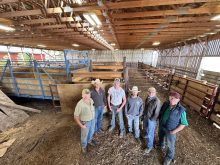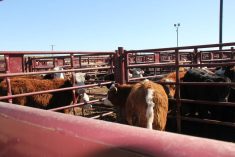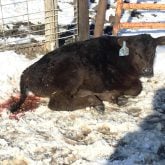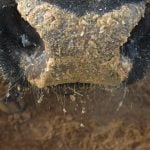Alberta’s Spring Creek Ranch plans to increase the size of its herd by 30 per cent by this fall, citing a significant market pull for the ranch’s branded beef product, which features cattle that have not been given hormones or antibiotics, nor been fed animal by-products throughout their lifetime.
According to company co-owner, Kirstin Kotelko, the ranch near Vegreville has gone from processing no cattle in April, 2006 to about 150 head every two weeks.
The ranch has restaurants serving its beef products across Canada and its fresh steak cuts are sold in Safeway’s 12 top stores in Western Canada. Its product line has expanded to frozen burgers and ground chuck, and they are now in the process of launching a fully cooked meatball product, which will be offered in 220 Safeway stores throughout Western Canada.
Read Also
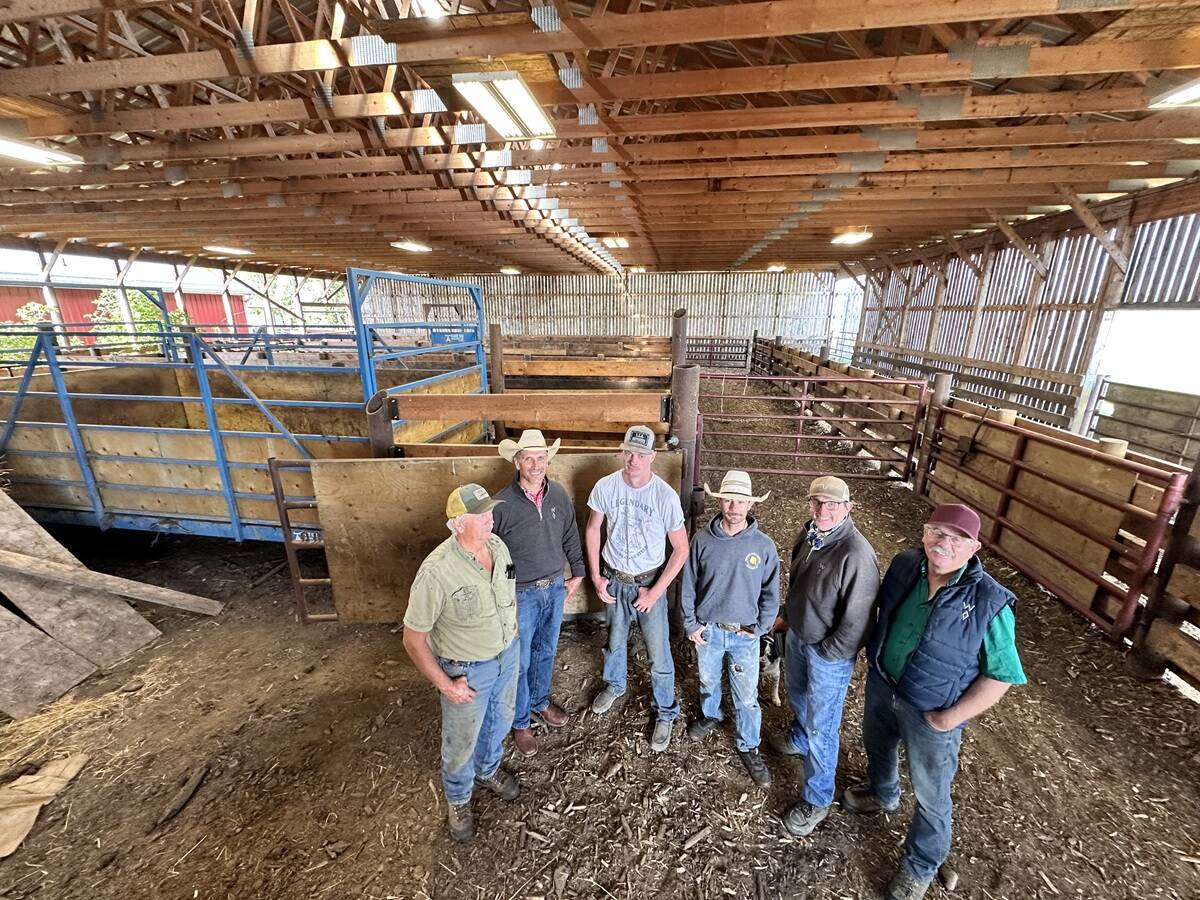
Farm families work together to graze cropland with cattle in the fall
These Alberta farm families have separate operations, but work together to manage their land
According to Kirstin’s business partner and father, Bern Kotelko, the company is finalizing a major deal with a customer in Quebec, which to some extent is driving the ranch’s program to expand its numbers from 3,900 to 6,000 head by this fall.
While Bern manages the Spring Creek Ranch feedlot as a branch operation of the much larger Highland Feeders operation, Kirstin focuses on sales and marketing of the end product. She has a university degree in marketing.
The concept of marketing hormone-and antibiotic-free cattle as part of the overall Kotelko operation should come as no surprise given the family’s history.
“All along during our whole development of the feedlot from as far back as the mid-1980s when we decided we should feed cattle here, we knew we needed to add value to what we do,” says Bern.
In addition to the branded beef program, Bern and his brother, Mike have partnered with a group of investors, including Evan and Shane Chrapko of ‘The DocSpace Company’ fame, on a $100 million expansion of an existing manure-based methane power generation plant from one to five megawatts and construction of a 40-million-litreper-year ethanol plant. Construction is underway.
Although branded beef production and marketing is well known and established in the United States, Kirstin Kotelko says it’s a relatively untapped market in Canada with very few players equipped to market their products on a national scale. She senses, however, that that is changing.
“I think the entire industry is moving toward branding because there’s value in a brand,” she says. “When you are producing just a commodity product, you have to follow commodity pricing and fluctuations in the market. When you are looking at branding, you have value in the brand. Ultimately, you hope there is no replacement for your brand, and you don’t have to follow the fluctuations in the market quite as much.”
The Spring Creek Ranch has identified two favourable consumers for its products.
“There is the consumer who buys it strictly on the attributes we can offer, specifically raised without hormones and antibiotics,” says Kirstin, “and then there is the consumer who buys it because they think it is premium and because of the consistency of the product.”
She says she has gotten considerable feedback from restaurant chefs who have indicated that they appreciate the consistency in marbling, sizing, flavor and texture.
What tweaked the Kotelkos as to the market potential for hormone/antibiotic free beef was an inquiry from Whole Foods in Toronto as to the availability of such a product back in 2002. Bern was already working with a group of ranchers that were motivated toward managing their herds to capture maximum value. Given his daughter’s marketing skills, and the apparent market pull factor, the Spring Creek Ranch concept was born.
Still, it’s been hard work because it


